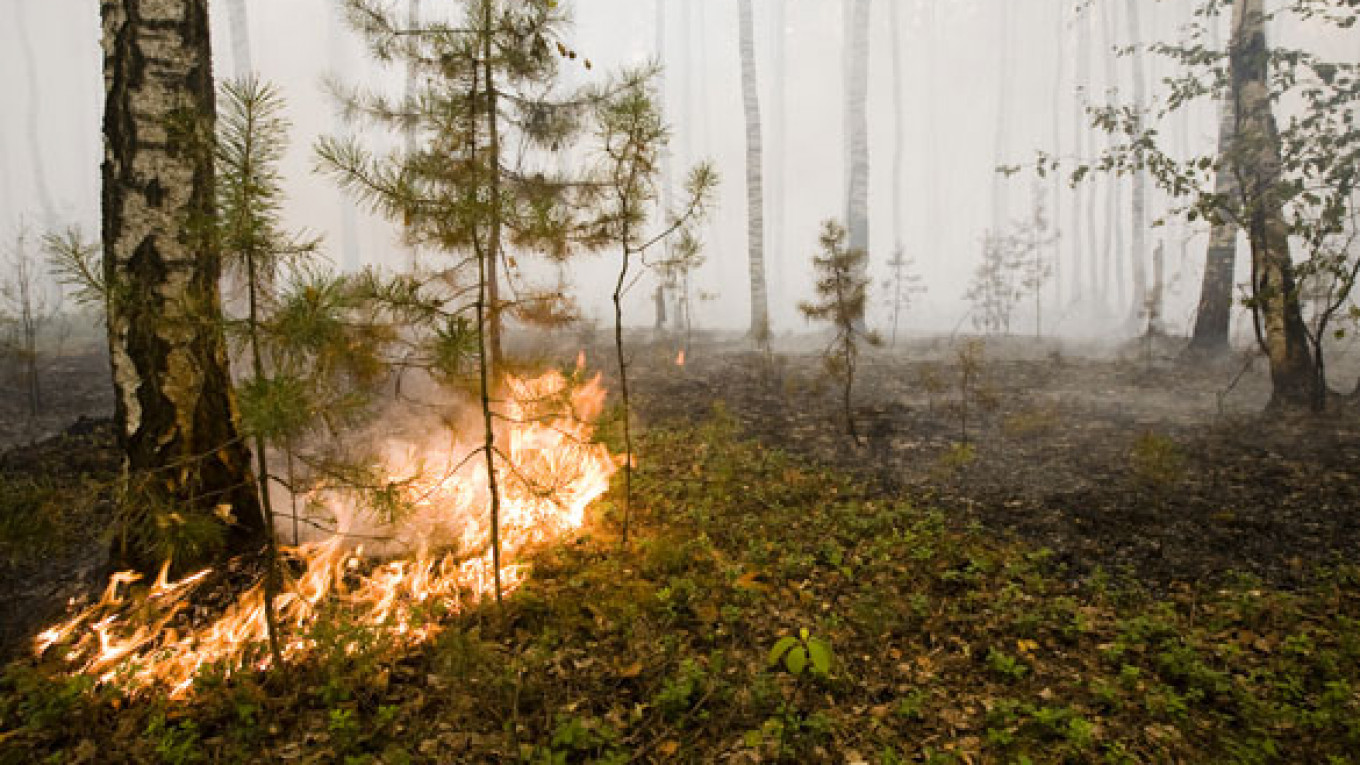Firefighters battled adverse weather conditions Friday as they struggled to control wildfires on the Mongolian border.
Steppe fires fueled by strong winds destroyed 20 houses in the southern part of the Zabaikalsky region Thursday night and early Friday.
Firefighting aircraft dispatched to help extinguish fires in a remote part of the Zabaikalsky region were grounded at least until Saturday morning because the same gale-force winds that are spreading the fire make it impossible to fly, regional governor Ravil Geniatulin said.
"We cannot use the air force because of strong winds, simply terrifyingly strong winds, and secondly because the lakes are still frozen, so it is impossible [for the plane] to take on water," Geniatulin told Prime Minister Vladimir Putin via video link Friday, according to a transcript of the conversation on the government's website.
Geniatulin said the fire that destroyed 20 houses in the village of Onon-Baza had been put out by Friday morning.
He promised to begin rebuilding the destroyed houses by summer. The regional administration has appealed to Moscow for financial assistance in looking after those made homeless by the fires, his office said Friday.
Officials in the region's Aginsky district told Interfax Siberia that the steppe fires were still burning, but said there was no threat to people or property.
Fires this year have also affected Primorye region in the Far East, where firefighters said they had put out five of six forest fires Friday. Meanwhile, reed bed fires that broke out in Astrakhan Nature Reserve in the Volga delta late last month are thought to be burning still.
Wildfires could threaten over 12,000 cities, towns and villages in the coming year, an Emergency Situations Ministry forecaster said Friday, RIA-Novosti reported. The Sverdlovsk, Chelyabinsk, Tyumen, Omsk and Amur regions are particularly vulnerable, he said.
Wildfires affected 1.67 million hectares of land last year, according to the Emergency Situations Ministry, and 2.45 million in 2010, when smog from burning forests and peat bogs smothered Moscow.
A Message from The Moscow Times:
Dear readers,
We are facing unprecedented challenges. Russia's Prosecutor General's Office has designated The Moscow Times as an "undesirable" organization, criminalizing our work and putting our staff at risk of prosecution. This follows our earlier unjust labeling as a "foreign agent."
These actions are direct attempts to silence independent journalism in Russia. The authorities claim our work "discredits the decisions of the Russian leadership." We see things differently: we strive to provide accurate, unbiased reporting on Russia.
We, the journalists of The Moscow Times, refuse to be silenced. But to continue our work, we need your help.
Your support, no matter how small, makes a world of difference. If you can, please support us monthly starting from just $2. It's quick to set up, and every contribution makes a significant impact.
By supporting The Moscow Times, you're defending open, independent journalism in the face of repression. Thank you for standing with us.
Remind me later.






